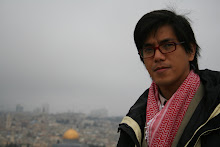Will I be censored? Is my writing provocative and important enough to be censored?
Fat chance.
Those silenced, incarcerated and martyred for their literary work join heroes—the novelist Jose Rizal, the constitutionalist Apolinario Mabini, the poet and author Amado Hernandez, the scriptwriter Pete Lacaba and poet Emmanuel Lacaba and the journalist Benigno Aquino Jr. to name a few.
Only with utmost skill and nerve can words cut and kill. Insights incite, poetry provokes and words weaponize. Only with awakened eyes and a fiery will can men dare to take up arms or lay themselves before tanks.
Rapacious friars, kleptomaniacal despots, vote-rigging crooks and illegal gambling lords have all rightly feared wordsmiths as much as any general or politician.
The Manila Times itself has garnered its share of attacks. Deposed presidents Estrada and Marcos each tried to silence the newspaper, the former with a lawsuit and a change of owners and the latter with arrests and a shut down during martial law. Noteworthy as well is how the Philippines has become as one of the deadliest places for journalists, second only to Iraq; 22 have died from 2000 to 2006 alone.
Those writing from danger’s jagged maw have much to consider: Am I putting my publication and the livelihood of its employees at needless risk or am I furthering its highest ideals? Has the threat of a government clampdown made my writing conscientiously rigorous or unconsciously sanitized?
But for those far from harm’s way, another question arises: At a time that calls for blood and sinew, does my writing offer nothing but froth and pastry?
Literary heroes such as Rizal, Hernandez and even expatriate writer and labor leader Carlos Bulosan have proven that aesthetic disciplines do not insulate a man from the struggles of the day. Rather, our craft—be it fiction, poetry or journalism—further involves us in the concerns of the nation and its people. The struggle to author empowering and nationalist literature is itself a worthy and necessary cause.
These times call for words honed well and aimed with mortal intent. This is the year for writing dangerously.
Talons and raptors
We writers ought to take the threat of censorship as a dare to deserve the attention and enmity of the enemies of truth. They have given us something to write about and, mark these words, we will.
We readers ought to take the assault on press freedom as a call to exercise critical thinking—to sniff out and shun both propaganda and biased attacks; to examine the media ownership and authorship; to verify the veracity of contentions and the logic of arguments; and to seek not just entertainment and trivia, but literature and relevant knowledge. Nothing threatens the despotic and the corrupt more than an informed and empowered public. We will be that threat.
I was but 14 years old when my family and I joined the People Power Revolt of 1986. When the late dictator Marcos fled, I thought it would be a true revolution that would bring lasting change. How wrong I was.
I was among the first to stake my body at Edsa on the Second People Power Revolt of 2001. When we unseated President Estrada, I thought we had sent a warning to all politicians that the same fate awaited them should they turn to corruption. How wrong I was.
I remain steadfast to the ideals of people power. I still espouse revolution. I mean to be a threat to tyranny.
It takes a nation to save a nation. I am one among many. And I aim to make things right.
Tuesday, February 12, 2008
Subscribe to:
Post Comments (Atom)

No comments:
Post a Comment